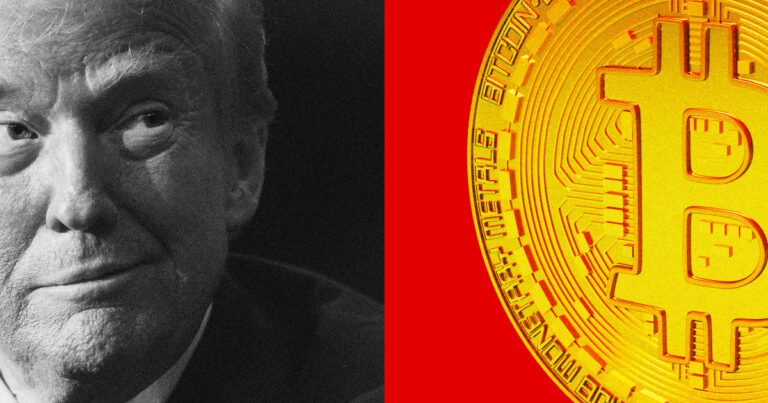Throughout history, the American presidents broke up with the previous ones, but for an elected president, launch a “same corner” crypto A few days before his inauguration is really at the forefront of the unwelcome. As Donald Trump returns to the White House after its 2024 electoral victory, its association with the launch of a coin represents an unprecedented convergence of presidential influence and speculative finance. Even Andrew JacksonWho had a notorious appetite for the game and the financial risk, never showed the audacity to promote an investment product on the eve of its entry into office.
These are purely speculative instruments, which only exist shamelessly to enrich their creators.
Even if the value of established cryptocurrencies remains a subject of considerable debate Among economists and technologistsOther cryptocurrencies often peddle a narrative justification centered on utility. Bitcoin supporters, for example, suggest its potential as a digital gold analysis or as a payment network; The followers of Ethereum underline what is called smart contracts. The question of whether these proposed applications are ultimately viable is highly questionable, and many criticisms claim that these stories are fundamentally inconsistent.
MEMES PIECESOn the other hand, give up the pretension of utility or narration: these are purely speculative instrumentsExisting shamelessly for no other reason than enriching their creators.
The mechanism of parts even is remarkably simple: initial buyers acquire tokens at a nominal cost. Advertising intensifies, often fueled by the amplification of social media and the fear of being left behind, and prices are climbing. The first investors can then sell their assets to subsequent buyers by making a profit. This dynamic, however, is intrinsically unbearable, and the inevitable result is that subsequent investors are found with digital tokens largely without value, independent of any active or income. It is mathematically certain that a majority of participants will undergo financial losses – the only question is the precise distribution of these losses. The value of these tokens is based solely on their ability to encourage successive buyers to pay an inflated price, a characteristic that invites comparison with pyramidal systems without the open promise of guaranteed yields.
Launching Trump’s tokens Just before the nomination represents a disturbing evolution in the field of money in politics. It is shocking to have the presidential office, even tangential, linked to a financial company so purely speculative at such a sensitive political moment. This timing seems to suggest that supporting the candidate and engaging in a risky financial bet are in one way or another linked, a concept that raises important ethical concerns about the influence of the candidate. personal financial interests on political decision -making and could potentially drive Conflicts of interest.
The dangers surrounding the pieces even do not come so much from the fact that they exist in a regulatory vacuum, but rather from the fact that certain cryptography companies operate with cynical contempt for the laws we have. Already to have. Traditional financial markets have rules that prohibit predatory offers and market manipulation and require disclosure, but many cryptography operations openly flout these regulations, knowing that regulators often lack resources to enforce them. The result is a perfect storm for market manipulation, with concentrated property and coordinated purchase campaigns carried out openly on social media platforms.
This market behavior model strangely recalls the time of “thieves barons” of the end of the 19th century. Before the advent of securities laws, powerful personalities have raised fortunes thanks to stratagems that have often left ordinary investors in financial ruin. This era, characterized by limited regulatory monitoring, allowed many predatory and abuse stratagems which finally led to modern securities regulations that go on traditional finance today.
What is particularly worrying in the current situation is the combination of a historically familiar model with the speed and scope of digital technology, and now the direct association with a presidential transition. Potential buyers may not understand that they do not invest in something real: they simply buy tokens in a digital game of hot potato, where the only way to win is to transmit their assets to someone others at a higher price before music. stops.
The global boom in cryptography reflects deeper nihilism in American culture – a collective rejection of fundamental value and market premises.
The global boom in cryptography reflects deeper nihilism in American culture – a collective rejection of fundamental value and market premises. In this vision of the world, if investment is a rigged game, why not accept absurdity? Such a cynical perspective considers markets as a simple casino where the only things that matter are the momentum and the overhaul. The fact that this state of mind has become closely linked to the presidency, with symbols supported only by vanity and political loyalty, reveals a profound loss of confidence in institutions and in the very concept of value.
For the public, the message must be unequivocal: the pieces even, whatever their brand or their timing, are not legitimate investments. These are speculative bets, which are more like lottery tickets than financial assets. When they are draped in political symbolism and launched at times when public attention is increased, they become a particularly dangerous proposition: a chimera of political dedication and financial carefreeness which contains many moral risks and does not serve the ‘public interest.
The launch of a personal currency by a president represents a dangerous confluence of political power and speculative finance which would be bad in itself. More fundamentally – and more disturbing – this represents a betrayal of the duty of the function. Use the highest function of the country to promote a financial product intended to transfer public wealth to an individual involved in the institutional integrity of the presidency itself.
The same Trump is perhaps only the last chapter of this current story, but it signals a new disturbing direction in the use of political influence for financial purposes.

